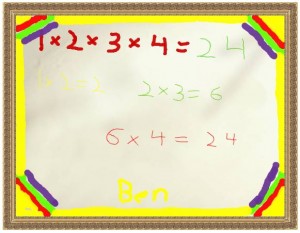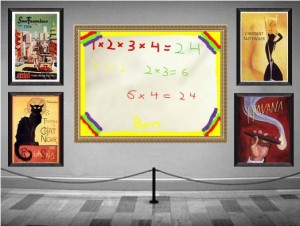Mea Culpa
It’s been a busy week and thus the blog posts have been few and far between. My apologies and I will try to be more regular with my posts.
First of all, there is no spelling list or memory verse for this week due to the shortened week. We will continue with the spelling and memory verse next week as per usual. After this next spelling list, we will be going back to review past spelling words and start doing more work with them in sentence form.
 You may have noticed that your child brought home a poem in their planner (or pocket as the case may be). It is that time of year again and we are preparing for the Speech Meet which is held annually in Abbotsford. This is a big event for us and we always do very well. However, this year is a little different for us as we have a winter break between now and the day of the Speech Meet, which will be held on March 5. As we want to get our entries in before we leave, we will be choosing the students who will be going on February 10th. Participation is optional and if your child did not bring home a poem or memory verse that may mean they did not want to do it. Please ask your child if they selected a verse or poem to practice. Poems or memory verses must be memorized. We are also working on adding expression and proper standing postures to the recitations with students standing nice and straight with no hands in their pockets and their eyes on the audience. Adding expression is always hard for students but we are looking for students who can recite with confidence using a proper volume and with excitement in their voices. On February 10th, we will hear all the students from our class who chose to do a recitation and I will pick students from there. We are allowed to send 1 poem reader and 1 memory verse reader from the Grade 2 and 1 poem reader and 1 memory verse reader from the Grade 3’s in my class. If you have any questions or you need another copy of the poem please let me know!
You may have noticed that your child brought home a poem in their planner (or pocket as the case may be). It is that time of year again and we are preparing for the Speech Meet which is held annually in Abbotsford. This is a big event for us and we always do very well. However, this year is a little different for us as we have a winter break between now and the day of the Speech Meet, which will be held on March 5. As we want to get our entries in before we leave, we will be choosing the students who will be going on February 10th. Participation is optional and if your child did not bring home a poem or memory verse that may mean they did not want to do it. Please ask your child if they selected a verse or poem to practice. Poems or memory verses must be memorized. We are also working on adding expression and proper standing postures to the recitations with students standing nice and straight with no hands in their pockets and their eyes on the audience. Adding expression is always hard for students but we are looking for students who can recite with confidence using a proper volume and with excitement in their voices. On February 10th, we will hear all the students from our class who chose to do a recitation and I will pick students from there. We are allowed to send 1 poem reader and 1 memory verse reader from the Grade 2 and 1 poem reader and 1 memory verse reader from the Grade 3’s in my class. If you have any questions or you need another copy of the poem please let me know!
Science has been a frantic, “let’s finish it up” time with students trying to get all their projects and papers done and in order before the deadline. Looking at the budgets from each class, all students were able to complete their projects on time and within budget. Luckily the storekeeper was very kind and gave some great deals towards the end of the projects. Projects will be going home tomorrow, but you can see them right now by watching the video below!
Our next science unit will be on States of Matter where students will be taking a close look at the properties of air, water, and gas.
In Language Arts, we have been continuing with our Daily 3 reading program. It has really been great to be able to work with small groups of students at the same time. As I work with the students in these small groups listening to them reading and working on certain aspects of their reading and comprehension skills, the other students are focused on sharing reading with a partner, reading on their own or reading along with a Cd. It has been a great program. For our writing, we have moved into organization of stories with a focus at this point on story beginnings. We have talked about how a story beginning needs to draw in readers and make them want to keep reading. One of the students today said that it is like writing the first part of a story and putting a “to be continued” at the end of it. It makes the reader interested in how the story is going to resolve itself. We took some common events from throughout the year, and drew a picture of ourselves doing that ordinary, everyday activity. However, the students added something interesting into the pictures to make it more exciting. Now, they are working on taking the picture and crafting it into a story beginning. At the same time, we have also talked about how we need to make our first sentence interesting as well, which is always a hard thing for students to do. We talked about how they can use beginnings like “One day . . . “, “It was a warm and bright . . . “, use conversations to start a story or use a book to find a beginning that you can adapt and use in your own story. We have already been getting some very interesting story beginnings. From there, we will work on the middles of stories and endings. I also told the students that I had a crazy idea for putting all those story beginning, middles and endings together into one story but I would tell them later. I will give you a clue though:
Speaking of Oliver Jeffers, if you haven’t read any of his children’s books, I highly recommend them. They are lots of fun and the illustrations are beautiful! They have also made one of his books into an animated video, which you can see a preview of right here:
I have placed some new links on the side. You should see a link to the Reading A-Z site where students can read books online and have them read to them as well! I have also put a link to a neat site where students can make regular maps and treasure maps to play with and print out. The last link is to a neat free program where students can make cool mindmaps of anything they want. It is free but annoying pop ups to buy to program come up every once and awhile.


